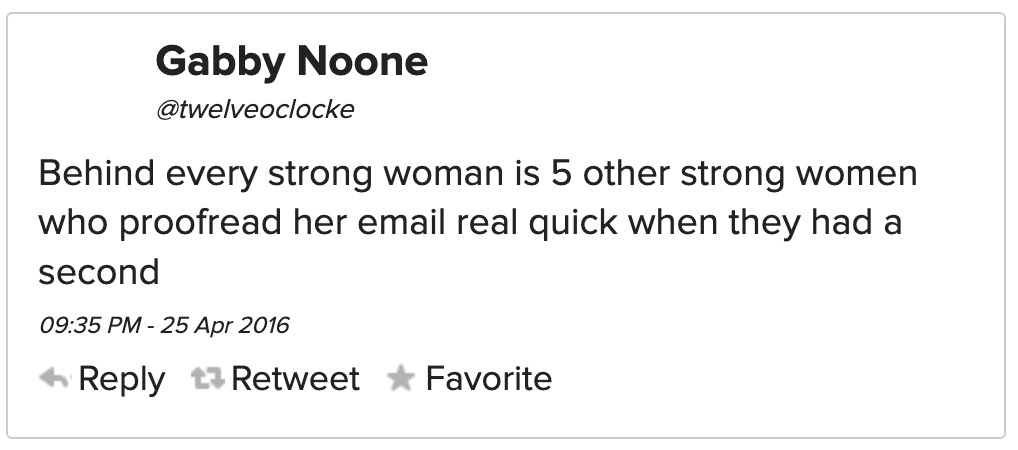It’s a long weekend here in the United States, meaning office workers, at least, get a three-day break from the dreaded meeting. We wanted to take this time to offer up an impassioned defense of … email.
Hear us out. It’s conventional wisdom that meetings are killers of productivity and morale and happy work environments. So why not write an email?
We know email has its drawbacks, too — it’s hard to manage and riddled with spam. But as work moves ever more online, it’s superior to meetings. Two inbox zeroers and one Chaos Muppet drowning in notifications — see if you can guess who’s who! — tell you why.
Ram Iyer: Do you love meetings, or do you just hate writing?
Back when I used to smoke, I also used to work at a publication that had frequent and immensely unproductive meetings. Most of our team of over 20 people would just sit by quietly for an hour while someone droned on about something.
If you’re counting the person-hours wasted, each of those meetings wasted an average of 20 hours that could have been spent doing actual work. They were unnecessarily stressful, too: I found myself desperately wanting to smoke after every single meeting, and I wasn’t alone.
Thankfully, that hasn’t always been the case. I’ve been fortunate to mostly have worked in companies that fostered a culture of just communicating via email or messaging. But in hearing my friends and ex-colleagues complain about work over the past couple of years, I noticed a trend: As the pandemic sent everyone home, meetings became ever more frequent to the point that people found them getting in the way of their work.
I’ve asked this question often over the past couple of years: If it can be an email, why isn’t it? Why are people so driven to speak when they could write an email and save everyone’s time?
I think I finally have a theory.
My hypothesis (backed by nothing but my subjective experience, hearsay, and obviously biased opinions) is that employees at companies that don’t deal in much written communication often default to speaking instead of writing.
Since writing isn’t encouraged or required, over time, many people simply become uncomfortable communicating via text, and that results in them choosing to speak their thoughts in meetings.
I’m sure anxiety plays a role, too, as Annie writes below. I can read and write in four languages, but if you ask me to write more than a sentence in anything except English, I’d bolt.
Now, I can see the pitchforks coming out, so let me say this: I see nothing wrong in communicating aloud if it helps you get your point across clearly. Here in India, fluency in English is already enough of a class problem that I’ll be damned if I’m going to put down people who have difficulty writing emails to their international counterparts.
I admit, meetings have their place. They’re great for collaborating on important decisions or building camaraderie; they’re even better for resolving conflict, as important nuances such as tone and voice are hard to communicate over email. But they’re also often a colossal waste of time.
I guess this is where asynchronous messaging platforms can help. Everyone can communicate how they want to, and no one’s time gets wasted. Companies and managers can also play a role here: Instead of showing a preference for a primary mode of communication, advocate and encourage different ways of communicating.
It’s ironic given my profession, but it took me a long, long time to realize just how important a skill writing is. If companies can encourage, train and help their employees write better, it’s only going to help them in this age of the internet. Also, email’s just way more efficient.
Alex Wilhelm: Writing is actually the superior form of communication
I respect that we are all different. That we learn better in different ways. That some of us digest information more easily when it is shared verbally than written. But given that group communication will rest more on one form of communication than others, we have to choose. And that means putting some folks at a disadvantage, no matter how hard we strive for fairness.
What I’ve seen out and around the working world is that, often, managers are a bit more extroverted than individual contributors. And as managers set communication norms for their teams, those standards tend to lean toward meetings. Verbal, spoken, out-loud meetings.
In practice, this leads to team communication norms that are synchronous and verbal. We should push back on this.
Why? Because while some folks do learn better with verbal instead of written communication, I think that it is more burdensome for folks who prefer written communication to hack it in a verbal meeting than the other way around. Why? Time. Folks who learn a bit more slowly from reading than, say, listening can take more time when ingesting and writing words than reading-oriented folks are afforded during a rapid-fire conversation. You know, the sort of meeting that everyone claims to want — quick, to the point and free of useless bullshit.
This is one part of my thesis that the written word is superior to the spoken word for conveying meaning to a group. Not only does writing give the speaking person more time to collect their thoughts and be concise, but it also helps prevent errors and omissions; you can have someone read your document ahead of sharing, while it’s far harder to get real-time feedback when speaking! (And for folks working in a language that is not their first, they may prefer having more time to get their thoughts in order than being put on the spot to riff in their second or third tongue.)
Oration is an art. We could all learn to be better verbal communicators. But when it comes to group comms, we should not demand that people level up to a very high standard when there is an easier bar to meet — writing — that is within reach.
Finally, because I am a brat, I would add in closing that writing is also a way to ensure that what we want to communicate is the right thing to share. Amazon is a company with many flaws, but its perspective on written memos is not, I would wager, incidental to its ability to think long term.
Annie Saunders: Email anxiety is real, and we should all aim to assuage it
Listen up, pedants! It’s time to cool your jets.
I want to first note that I am an authority here. I have a semicolon tattooed on my forearm. I have been an editor for 15 years. And I know that some fussbudget is likely gonna pop up on Twitter and criticize a choice I made in writing this little essay about why we need to ensure everyone feels comfortable expressing themselves with the written word.
To that, I raise a middle finger. Nay, two middle fingers!
People assume I am judging their writing even in casual settings. They’ll point out a minor error on a sign or a menu or a tweet, and say, “This must drive you crazy.”
It for sure does not. If every error I noticed drove me crazy, I’d be institutionalized.
All of this is to say: If I can let it go, so can you. And you should, because if we can’t get everyone to be more or less comfortable with the written word, we’re all going to be sitting through a lot more meetings.
Meetings are where productivity goes to die. This is so well established that startups have formed around the goal of improving virtual meetings.
“This could’ve been an email” is a worn office-worker cliche. Well, sure. Most meetings could probably be emails. But what if the issue is that the person who scheduled the meeting isn’t comfortable sending an email, as Ram posits above?

Image Credits: Gabby Noone
This classic tweet is one that friends have sent to me after I’ve edited their emails, and I’ve sent it to friends as justification for why I’m always happy — seriously — to edit their emails.
The anxiety is pervasive. The women who ask me to edit their emails and resumes and cover letters and work reports are doctors, reporters with national news outlets and social workers. Badasses abound. And yet! They are so worried about clicking send that they need a little reassurance from me first.
I’m not saying we should put up with routine 8,000-word diatribes that clearly didn’t get a second pass. But people should be able to put their thoughts in a concise email, give it a read, run it through Grammarly and click send.
English evolves; that’s part of the beauty of it, and digital communication is only accelerating the erasure and modification of some “rules.” It would behoove us all to ease up a bit. We might, in the end, wind up understanding each other better.
